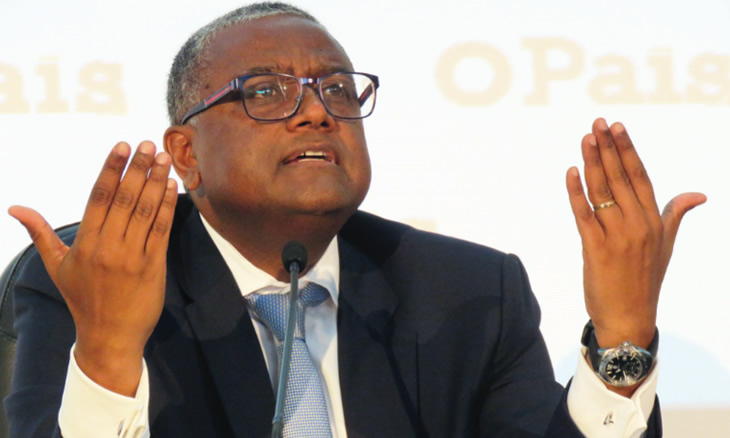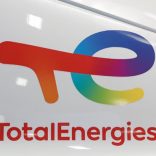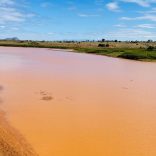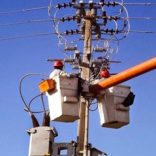TotalEnergies and partners lift force majeure on $20 billion Mozambique LNG project - Reuters
Mozambique: “It is possible to anticipate revenue from Rovuma gas” – ENH chairman

Photo: O País
The chairman of Empresa Nacional de Hidrocarbonetos (ENH) says that Mozambique can anticipate Rovuma basin natural gas revenues due to start in 2022.
“Revenues starting to flow in 2022 can be anticipated. It is financial engineering, which is called collateralisation: to issue assets supported by some real flows. The market works with expectation. Any valuation of an asset is not made due on the basis of its history nature, but on expectations of cash flow generation,” Omar Mithá said in a lecture he gave this week on the occasion of the 13th anniversary of the newspaper O País.
So far, only the Coral South project has achieved final investment decision status in 2017, and the floating platform for the liquefaction of natural gas is now under construction. Costing an estimated US$4.7 billion, the platform is being built in three countries – South Korea, England and Singapore. It is expected to be completed in 2021, with the first gas produced in the Coral South field being exported in 2022 from six wells varying in depth from 1,500 to 2,300 metres as part of the Rovuma Basin Area 4 project operated by the Italian oil company Eni.
It is from this project that the ENH chairman considers it possible to anticipate profits. Mithá notes that the project has credible buyers, including public companies from developed countries which have signed medium- and long-term contracts.
“Just as you have an invoice saying you’re going to receive money from the state, you can then go to the bank, which can then lend you money. But maybe you will receive a million, but the bank says it can only lend you 500 meticais and it will take 50 percent off over six months. That is why it is important to study [the matter closely] so that there is no unbalanced deal,” he said.
Mithá acknowledges that it would be a very complex transaction. “Obviously we would have to see what creditors we have, how payments are processed, and other procedures.”
In addition to anticipating state revenues, Mithá says that ENH could also finance its participation in Rovuma projects through the early sale of gas.
“At the time, we could convince the other shareholders that we will receive in kind and put the gas on the market in advance. Then we would have the money to make our investment. It’s a fantastic idea. But because the market was very weak, it would not be easy to convince [buyers] and it would be necessary to maximise revenues to make the project viable.”
And it is because the strategy for the early sale of gas would not work that ENH is in the markets looking for two billion dollars to finance its share in Rovuma gas projects. To this end, the public company hired financial consultants Lazard Frères, Lion’s Head Global and Société Générale. In a recent interview with financial news agency Bloomberg, ENH’s PCA described the move to markets as “extremely urgent”, including as it does trawls through Asia, the Middle East and South Africa.
Lazard, which is already advising the government of Mozambique in the renegotiation of “hidden debts”, will also provide legal assistance to the financing of ENH’s participation in Rovuma Basin Area 1, whose operator is the US oil company Anadarko. Société Générale will also help with the financing. Lion’s Head will be the consultant responsible for ENH’s advice on participating in the project that the Italian oil company Eni is developing in Area 4.
subtite – “Hidden debts” do not affect gas projects in the Rovuma basin
During the debate, one participant questioned whether the “hidden debt” dossier that had alienated Mozambique from the international financial markets was not affecting Rovuma basin projects.
In response, the ENH chairman said that the country’s rating agency ranking was not jeopardising the progress of the projects, noting that in 2017, Area 4 concessionaires made Coral South final investment decisions, the only gas exploration project in the world that had final approval that year.
“This has brought intangible gains, such as putting the country on the map of potential gas producers. Great players have joined, such as Exxon Mobil, which is developing an onshore project. By demonstrating our ability to organise a billion-dollar project, Mozambique has gained more credibility and confidence,” he said.
To publicise the Rovuma projects, Area 1 operators have created an ‘LNG Mozambique’ marketing brand, based in Singapore and headed by a foreign director general.
“The deputy director will be a Mozambican, an ENH employee currently participating in negotiations with the vendors. Another Mozambican is working in Houston in the area of markets. So there will be no low-price negotiation which will hurt the country. The market is very transparent. We know how much a barrel of oil is, there are indexes where it is sold, so it is possible to get that information,” Mitha explained.
The ENH chairman noted that consortia decisions were taken together and passed if they had more than 60 percent approval. In certain matters, each company has the right to veto.
“Things do not just depend on the operator, there are principles of governance.”
For even better access to information, ENH has geologists and other specialists as well as the regulator, the National Petroleum Institute of Mozambique.
“The regulator was helped by Norway and other consultants who are currently carry out readings on the reserves. Before approving the development plan, how many wells would be sunk and their level of recovery was discussed, and this technical data was evaluated to mitigate the risk of any asymmetry in the information.”
By Emídio Beúla












Leave a Reply
Be the First to Comment!
You must be logged in to post a comment.
You must be logged in to post a comment.